I had a friend over for dinner last night and she was looking through my Vietnam photos.
She said
“But …. just look at all these photos, isn’t it strange ….”
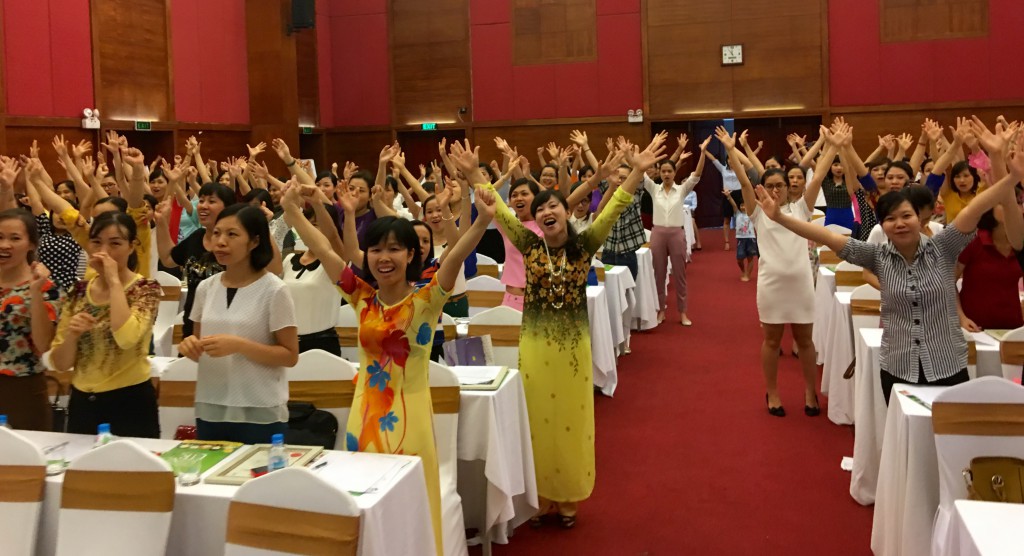
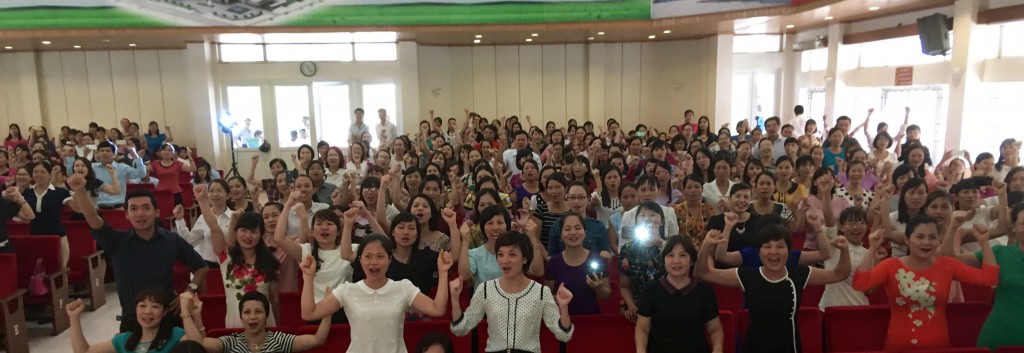
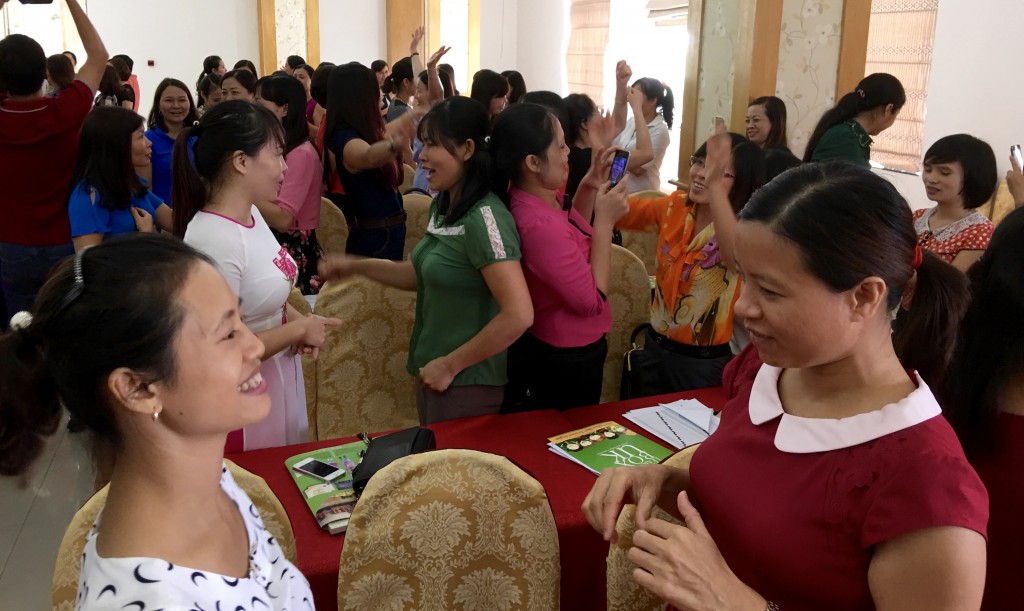
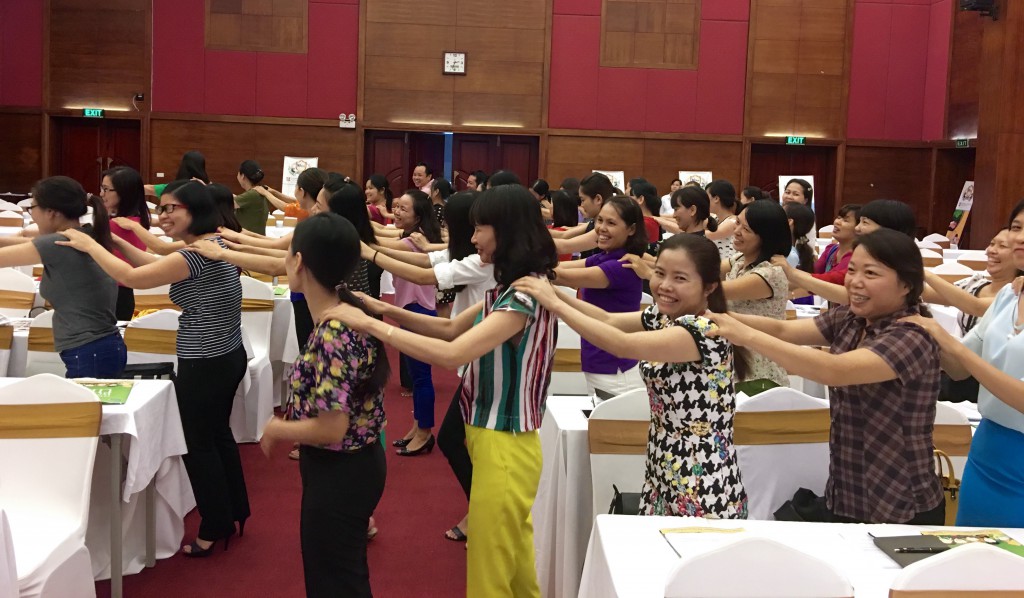
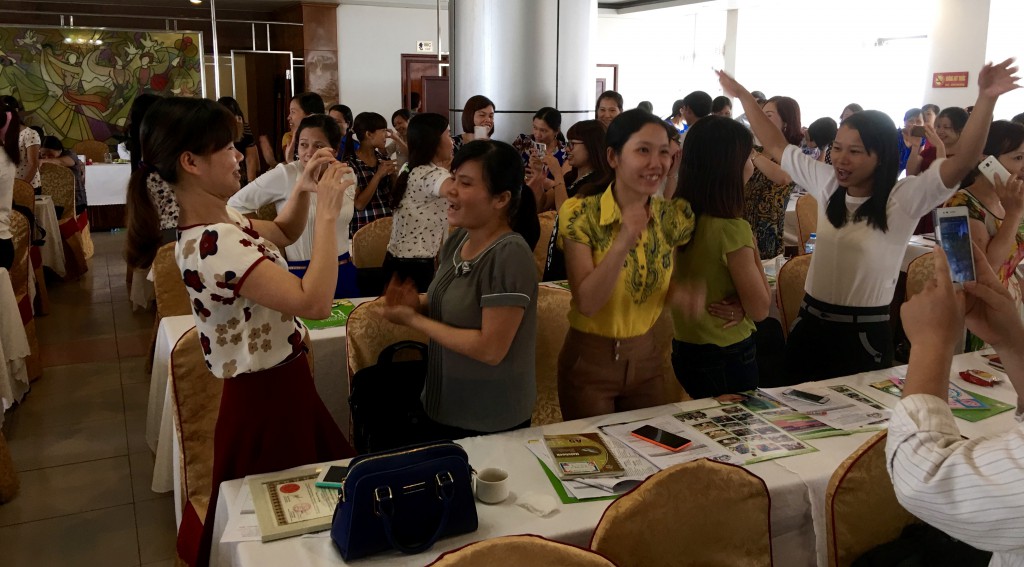
…. in each city, it’s only women.”
Even in Ukraine last year ….

And it was almost all girls in Italy & Tokyo ….
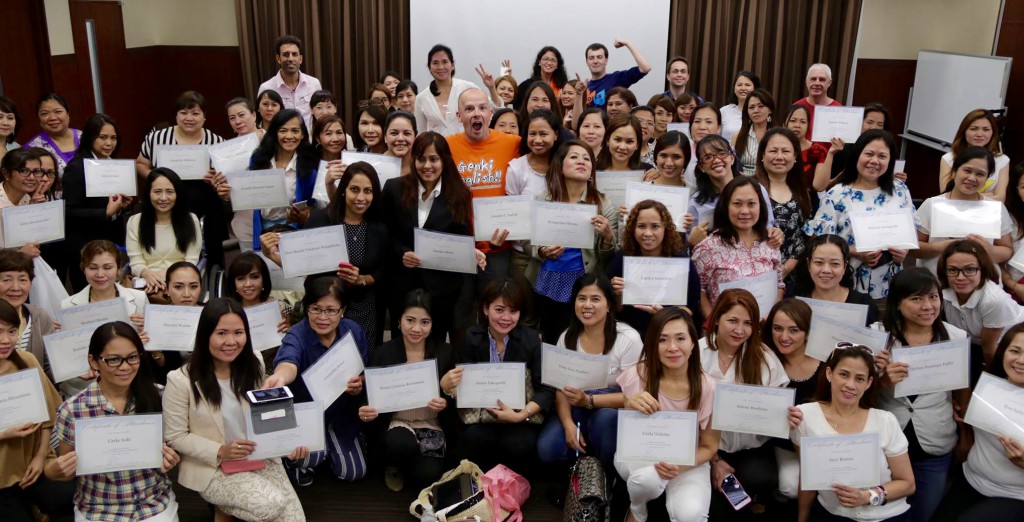
… and Thailand …
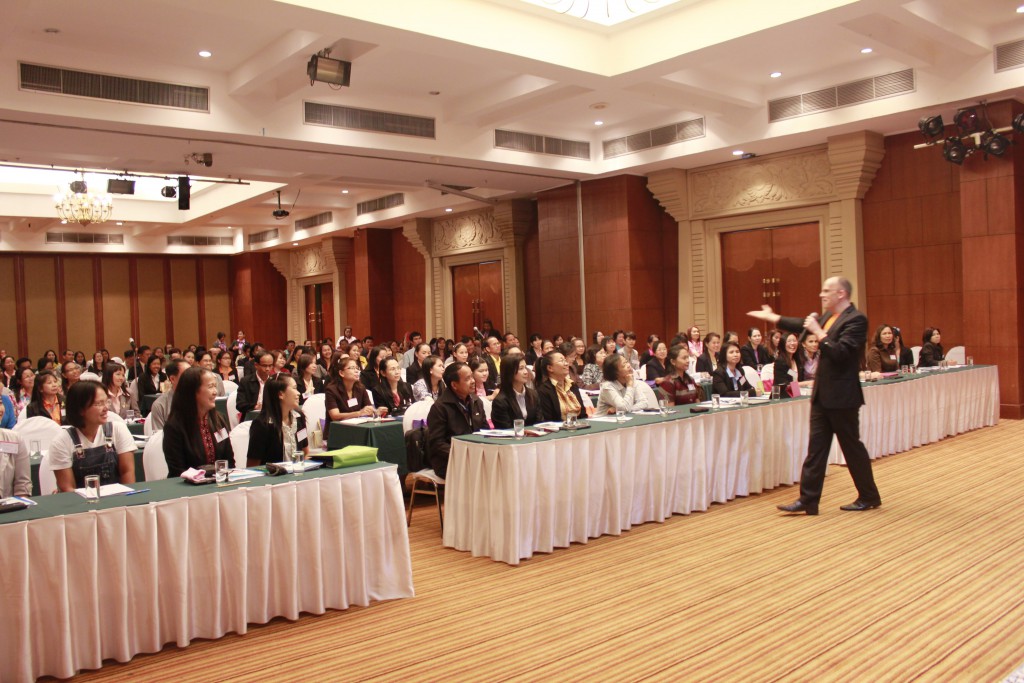
Now this could be just because it’s my workshops and all the female teachers are attracted by my charisma and personality
(Just joking 🙂 )
But she continued….
“So where are the role models for little boys to learn to speak English?”
An interesting thought.
Some people might say it doesn’t matter because balancing up the gender gap in education is more important.
“Teach a boy, you teach the boy. Teach a girl, you teach the whole village.”
But with huge numbers like this is society really sending out the signal that English is only for girls?
Or is it purely a by product of the male dominated society we live in that limits women’s employment opportunities so much?
Would love to hear your thoughts in the comments!
Be genki,
Richard




Interesting observation. May I ask if your workshops are representative of the teacher population? In my experience in Japan, there is probably a 6:4 ratio of female to male elementary teachers. I would say that more males actually teach English only because females are more often assigned to teach the younger years.
It is also my experience that teaching is one of the few professions in Japan where women are ‘almost’ treated equally.
I wonder if more women attend your workshops because more women are willing to step out of conventional methods to find better ways to reach their students…
Hi Gumby, generally they are pretty representative and especially for English teaching (different subjects often have different mixes)
In Japan I feel a big reason is because teaching English to Young learners (elementary school age) has no career path.
Men are expected to get jobs with a career path. The safer the better, the bigger the company the better, or the ultimate, a government job.
Women have more freedom to pursue their interests. There are more women in English classes and there are more women teaching English classes. There are other reasons too.
Oh you took the words right out of my mouth: they’re there for you! hahahaha
I agree with Trevor. I know very little about Japanese culture (so who am I to say, right? LOL), but I think he’s well on the right path on this one!
Good observation, but I think it has several simple reasons. In Japan there are so many housewives who have started or are starting teaching English after childbirth, kind of as a hobby and go from there on. It is an easy job to do at home and they can get supported by some chains.
All the schools run by foreigners I know, are run by male teachers.
Anyway, one thing about the role model for boys: In many cases it is their dads.
I was surprised myself to find so many of my students fathers speaking really good English. I hardly every see them and if I do they do speak Japanese, but I figured out their ability when I gave them some homework. They had to do a dialogue and send me the video. Many of them came with their dads taking over a part of their dialogue.
As for your workshops~it is YOU! so better be careful, you might get very busy now you’ve realized the truth!
I have been teaching in various schools and locations for four years in China, I don’t know about the teachers but I have noticed that among the students, the girls are normally very good at English and enjoy it but the boys find it very difficult and don’t like it. ( probably because it is difficult for them).
I would estimate, from my experience, that in my average class, I have had classes with as many as 80 kids and mostly never an assistant, 90% of the good English students are girls and maybe upto 10% are boys. ages from 4 up to adult.
I think this is why most Teachers are female.
I have been teaching Genki a lot of the time.
I think it’s more about the fact that women feel better in this role. Teaching demands patience, warmth, kindheartedness, the need of being with children and probably much much more. I don’t mean to say that men can’t be all of that. It’s just that these are more feminine and this kind of job attracts more women than men because it’s closer to their ‘nature’.
Of course first af all,we’re all attracted by you but also in Spain there’re more female teacher.But when I told one of my groups that the following year the are going to be taught by a male teacher ,they said:finally a man is coming.
They’re all boys.
Yeah, I’ve noticed this phenomenon in China. All of my local Chinese co-workers have be women. There actually are 2 or 3 Chinese men in the entire organization of schools, but I’ve never worked with them and two of them are upper management.
On the other hand, most of the foreign (non-Chinese) ESL teachers in Hangzhou, China are men, though it probably really is more evenly split nowadays. I remember my previous boss (Chinese man) refused to hire foreign women to teach, because they didn’t have the stamina to teach the 6 hours on Saturday and Sundays. I always found his logic strange since all the Chinese teaching assistants, who tend to do much more of the strenuous labor, were all women.
I teach private classes to mostly kindergarten and elementary aged children in Japan, with a pretty even girl/boy mix.
Not exactly on topic, but definitely related, if the English teaching industry is female dominated, I’ve wondered about how that it affecting the curriculum and lesson styles. One of the things I absolutely love about Genki English lessons is that they are so active, which generally appeals to boys more than ‘sit down and listen’ lessons (and girls often seem able to handle that better). Time and time again I’ve seen boys in my classes electrified by songs like Superhero and Genki English Warmup.
Yeah, my classes tend to be either male-dominated or female-dominated for the most part. 9 boys and a girl. 5 girls and a boy. Haha.
Here um Brazil… It goes with the age… I’ve taught younger learners for 8 years now and I’ve got used to be the only man among many girls… However, the competition has increased in the market and teaching adults has become very tough in Brazil (if you want to get a great job), so more and more men have been apllying for positions with very young learners. Even though, it still stops at the age of 7 or 8 up… The even youngest, below 7, 99% of the teachers are female. And with the marketing growth they can build a career becoming principals, coordinators, educational book writers… And so forth…
I personally think it is mostly because of the general tendencies men and women have. More women than men are inclined to become teachers and if you account for English being a subject that belongs to the humanities or arts, then even more so. Then there are some countries where society reinforces those tendencies as “this is respectable for a woman” and “this is respectable for a man” so what you get is not only the natural tendencies of the female and male genders but also more women being encouraged into one and more men into the other, and even discouraged from taking other routes. I think there would be more men who would enjoy teaching if they only considered it more seriously and open-mindedly.
I noticed that in Japan there tends to be more women interested in English than men. My guess is more men plan to get jobs in the future where they don’t need English. Women aren’t expected to join the corporate world so soon and many go overseas to learn English and have a bit of fun. Also there tends to be more women interested in marrying an English speaking male foreigner verses a man interested in marrying an English speaking female foreigner. A lot of housewives too who obviously have more time on their hand wish to experience another culture so take an interest in English.